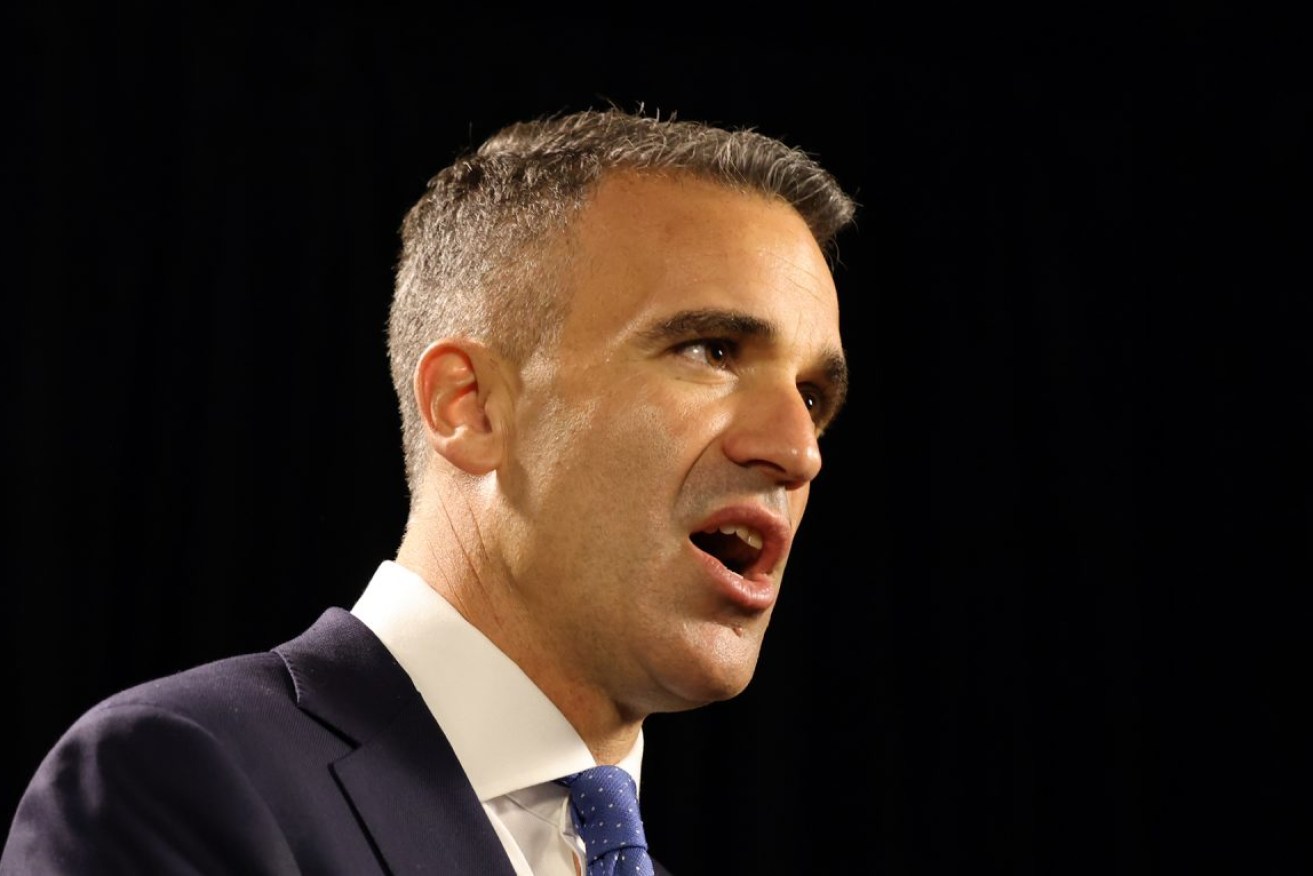Premier considered axing Writers’ Week funding over controversy
Premier Peter Malinauskas contemplated pulling government funding from Adelaide Writers’ Week as he was “genuinely disturbed” by a participant’s views on Ukraine, but said such a move risked paving the way for a future “where politicians decide what is culturally appropriate”.


Photo: Tony Lewis/InDaily
The Premier made the comments last night at a Town Hall event to open Writers’ Week, after weeks of controversy about new director Louise Adler’s inclusion of two participants in the high-profile literary festival.
News that Palestinian American Susan Abulhawa and Palestinian poet Mohammed El-Kurd were on the bill sparked intense criticism and calls for Adler’s resignation for giving a platform to authors of “hate speech”.
Abulhawa’s social media comments on Israel and Ukraine, including a call to “DeNazify Ukraine” were highlighted, as were El-Kurd’s opinions about Israel.
Ukrainian writers Olesya Khromeychuk and Kateryna Babkina then withdraw from the event, as did Ukrainian-Australian Maria Tumarkin.
The Advertiser called on Adler to resign, pulled staff from scheduled events and said it was reviewing its sponsorship.
Law firm Minter Ellison withdraw its sponsorship, and Malinauskas announced that he would personally boycott Writers’ Week events.
Adler defended the choice of participants, saying the literary festival’s point was not to have an environment where everyone agreed with each other.
“I am interested in creating a context for courageous and brave spaces where we can have civil dialogue and discussion about ideas that we may not all agree on,” Adler told The Guardian.
“If we all gather together just to agree with one another or with people who share our views, well some people might enjoy that, but I don’t think that’s the point of a literary festival.”
At last night’s opening, Malinauskas said his government had “faced unprecedented calls to defund this event because of the views of a handful of participants”.
The Premier said that it was possible to listen to another’s opinions without “compromising, much less negating, one’s own principles” and that “listening alone does not make you complicit in what is being said”.
“And, importantly, if we refuse to listen to someone’s viewpoint then we also surrender the opportunity to challenge it, much less change their mind. Or to put it another way: if we only ever speak to people we agree with, whose mind are we ever changing?”
But Malinauskas said that at the same time, “we cannot pretend that all things are relative. We cannot pretend that every opinion is equally meritorious, or that a lie is of equal value to the truth”.
“Open-mindedness does not oblige us to give a platform to hate speech, or let dangerous falsehoods go unchallenged. Nor does it mean letting any provocative blowhard hold forth on whatever fantastical claim they feel like sharing – after all, that’s what Twitter is for,” he said.
“Let me make very clear: when first I heard of Susan Abulhawa’s Tweet suggesting that Ukraine was at fault for their own invasion by Russia, I can tell you that I felt a deep and personal sense of outrage,” he said.
“The argument she ventilated, implying President Zelenskyy somehow brought this invasion on his country as a result of his moves toward potential NATO membership, is as absurd as the idea that Putin is merely trying to “de-Nazify” Ukraine. It’s a statement barely credible as propaganda, much less as fact. And I was genuinely disturbed.”
Malinauskas said that in his view there was “no grey area when it comes to a tyrant directly attacking the very principle of sovereignty”.
“For me, this is a black and white issue. And I have been steadfast in my condemnation of Vladimir Putin and the horrors he has unleashed.
“So I stand here tonight and actively call into question the wisdom of Susan Abulwaha’s presence as part of this year’s Writers’ Week.
“And I confess to contemplating removing government support for Writers’ Week. And to be sure, this may have been a politically expedient action for the government to take.”
But Malinausakas said that as Premier, he had to consider the consequences of his decisions.
“So if I was to unilaterally defund Writers Week on the basis of Susan Abulhawa’s views, what path does that take us down? It’s a path to a future where politicians decide what is culturally appropriate.”
The Premier said such an environment would lead to arts and festival boards and promoters becoming “more concerned with risking the wrath of government” than creating worthy, challenging programs.
“And at worst, it leads us to a future in which politicians can directly stifle events that are themselves predicated on freedom of speech and the expression of ideas. A path, in fact, that leads us into the territory of Putin’s Russia,” he said.
Malinauskas said that a “central function of leadership is to engage with those with opposing views – and to never run away from a fight worth having”.
“It is not to acquiesce to cancel culture by shutting down an event like Writers’ Week. So the event goes on,” he said.




